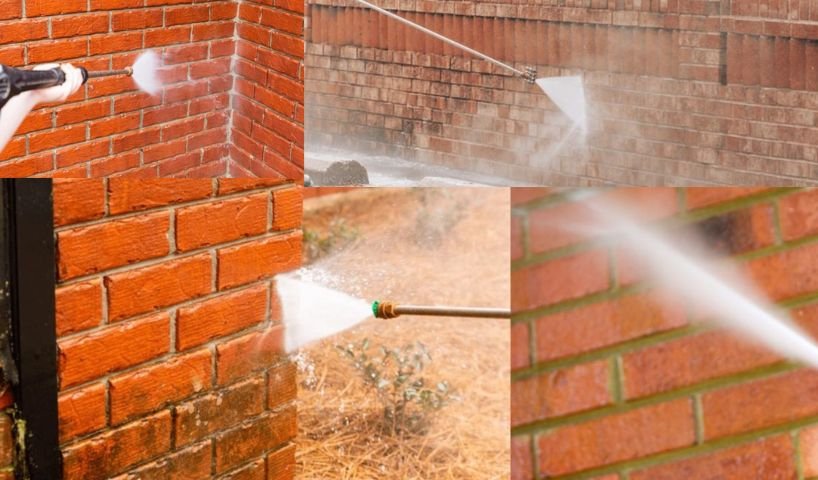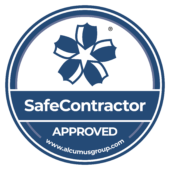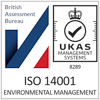Brickwork can be an incredibly aesthetically appealing surface. Brick surfaces can look stunning when taken care of, and can help to improve curb appeal and the value of your property, but often brick surfaces are subject to dirt and grime, squandering their potential!
If you've got brickwork that needs refreshing, you might be wondering how to clean brickwork and whether it's worth hiring brick cleaning services from EMS Powerwash to get your brick surface looking brand new. Well, here's what you need to know about the brick-cleaning process & what our brick cleaning services can offer you.
No hassle, no obligation—just a fair price for top-quality cleaning.

As with any surface, different kinds of dirt and grime on the brick surface will require different cleaning solutions. Bricks can get dirty from adverse weather, bird fouling, graffiti, organic growth and, sometimes they might even just have mortar and cement residues left on them from when the bricks were first laid. Each of these will need to be handled differently for example we have our very own graffiti removal service which specialise in removing graffiti.
At EMS Powerwash, we offer expert cleaning services for homes and businesses across the East Midlands. Our team uses the best tools and techniques to make your property look brand new. No matter the job, we deliver reliable, high-quality results every time.
There are a number of different types of brick and each one functions differently. This means that there is no 'one size fits all' when it comes to brick cleaning, making it a more complicated job than many people first assume.
It's important to know what kind of brick you have before you start looking into brick cleaning, and if you're not sure, then it is vital that you hire brick cleaning services as they will be able to tell clay brick from sand lime bricks or concrete brick, providing you with the right brick cleaning services.

Facing bricks are the most commonly used for outside wall construction as they're attractive. Engineering bricks are stronger and known for being less absorbent.

You can clean brickwork yourself, however, you should always be careful. Lots of things can cause issues. For example, simply using too much water is risky, and using the wrong cleaning method can cause irreparable damage. Choosing to use brick acid cleaner on old, fragile brick, could erode the brickwork.
If you opt to clean brickwork yourself you need to make sure you have done enough research as otherwise you might find that you ruin the surface. Before you begin, make sure that you always consider whether the issue is seasonal, and check that the stains aren't signs of a larger issue. If ever in doubt, contact EMS Powerwash for expert brick cleaning advice.
Airborne pollutants will naturally build up on walls over time. This is an issue for all surfaces, not just brick. When these pollutants build up, they can ruin the appearance of the wall and, if left untouched, can even damage the brickwork itself.
To clean bricks that are suffering from a build-up of dirt and grime you will need to use a mild cleaning solution. You should do this in mild temperatures to avoid any issues caused by water penetration (When water enters bricks and freezes, it can cause structural damage). High temperatures are also a bad idea as this can cause the wall to dry too quickly. You should use something like a stiff brush to clean your brick, being sure to avoid using a wire brush or metal brushes. You should also avoid pressure washing the brick as this can damage the brick surface.
If there is green growth on your brick surfaces you can use a trowel or stiff brush to remove the loose parts of the algae and moss. You should then use an algaecide brick cleaner on the wall, being sure to check that it doesn't contain anything that may be damaging to the brick.
In extreme cases, you may need to use a hose or a pressure washer (on the lowest setting, and used at a specific angle) to remove the rest. Be very careful doing this, especially with older brick as you could cause irreversible damage.
If the organic growth is ivy or something similar, you should seek professional advice as these plants often embed themselves into the brick and become very hard to remove.
White, brown or green marks on your wall are likely the result of efflorescence. This is caused by the presence of salt deposits left after water has evaporated from within the brick. This is very common during wet seasons and can be removed with a stiff brush or a damp sponge. Just be careful not to work too hard with your brush and to not over-saturate the brickwork.
When excess water flows through cement or mortar, it dissolves a compound called calcium hydroxide, also known as lime. This ends up being deposited onto the brick faces, where it reacts with the air and produces calcium carbonate, a white, hard substance.
To remove calcium carbonate before it solidifies, water and a brush will work just fine. After it has hardened, though, you will need a brick acid cleaner. This is a product you should use sparingly and be sure to do plenty of research into the brand before use as acid can be harmful to the brick surface.
All too often, wall accessories and doors lead to metallic and rust-coloured stains on our brick walls. These can be caused by a number of metals oxidising, and can really impact the appearance of your brickwork.
To remove these marks you might opt to use a brick cleaner, or you can simply leave them to weather away naturally. Filing the brick down is another option, but this is dangerous and, without expert knowledge, you may end up filing too far.
Often you will see on brickwork an oily-looking stain that only appears around the edges of each brick. This is pretty common, and it is caused by saturation during the construction process. It is not harmful, and it isn't particularly easy to remove. The best way to handle it is to prevent it in the first place, which is easier said than done!
When bricks are laid, sometimes cement and mortar end up getting smudged across the surface or are allowed to drip onto the brickwork. This can be irritating, especially if the rest of your wall is completely clean!
To tackle these sorts of marks, you should leave the mortar and cement residues to dry completely first. Otherwise, you run the risk of making the marks worse. Once dry, you can buy specially formulated mortar and cement cleaning products, but again, you should always be careful. If in doubt, contact the experts at EMS Powerwash to discuss brick cleaning services.
While all of the above methods are possible and can help to clean brickwork, the safest and most effective way to clean clay brickwork and to get your brick house looking brand new again is with a professional brick cleaning. Professionals not only know which bricks can handle which cleaning methods, but they also have expert equipment that can clean your brick wall much faster, making the job significantly easier.

DOFF steam cleaning service is an effective, quick and harmless brick cleaning method that uses low-pressure, high-temperature water. It kills all organic matter immediately and is completely chemical-free. It does, however, require expert knowledge and equipment.
Bricks that have been cleaned with the DOFF steam cleaning technique are left sterilised. All spores are killed, stains are removed and the brick is left looking as good as new.
In cases where there is extreme dirt or carbon sulphation on brickwork, experts may opt to use chemical-assisted brick cleaning methods. This involves a specially formulated brick cleaner being applied to the surface. This solution will break down any pollutants and is then washed away at low pressure.
Some properties have been painted in the past, and now have flaky, unappealing paint on the brickwork that is causing more harm than good. Brick cleaning experts like EMS Powerwash can remove paint from bricks using a steam-cleaning process with our brick paint removal service.
Expert brick cleaning services also include brick pointing. This is the process of professionally removing the mortar that sits in between the bricks and replacing it with a better quality, new mortar. This allows you to not only improve the appearance of your brickwork, but it also removes any damaged mortar, protecting your brick wall, and ultimately, your home!
No hassle, no obligation—just a fair price for top-quality cleaning.

Brick cleaning is a big job, and doing it wrong could lead to damp issues, structural damage and more stains than you started with. If you have brickwork that needs cleaning, contact EMS Powerwash today for a free quote and a conversation about which brick cleaning services suit you!
Brick cleaning is the process of removing dirt, stains, and other contaminants from brick surfaces to restore their original appearance. It is important because it enhances the visual appeal of the property and helps to prevent long-term damage to the bricks.
The cost of professional brick cleaning in the UK varies depending on factors like the size of the area, the level of staining, and the method used, but prices typically range from £200 to £500.
Methods used for brick cleaning include pressure washing, chemical cleaning, and sandblasting, each chosen based on the condition of the bricks and the type of dirt or stains present.
The brick cleaning process typically takes a few hours to a full day, depending on the size of the area and the cleaning method used.
Yes, brick cleaning can effectively remove graffiti using specialised chemicals and techniques that are designed to break down paint and other substances without damaging the brick.
Brick cleaning is generally safe for most types of bricks when done by professionals who choose the appropriate method based on the brick's age, condition, and material.




